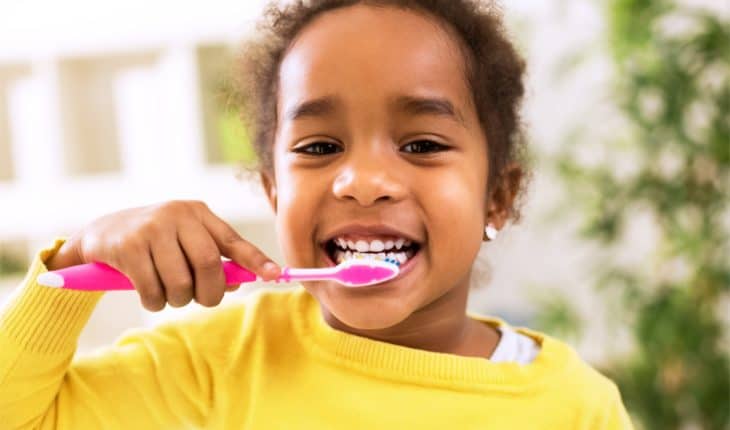Despite it being bad news for their health, one in four (26%) Brits seem openly-willing to share their toothbrush with others, according to the findings of a new study. 1
Commissioned by the Oral Health Foundation and Philips as part of National Smile Month, the research found that more than a quarter of the population admit they would share their toothbrush with a family member, friend, partner, neighbour or celebrity.
The poll shows that men are significantly more likely to allow somebody else to borrow their toothbrush (32%) than women are (20%).
Younger adults are also nearly twice as willing to share their toothbrush (55%) compared to their parents (30%), and around four times more open to do so than their grandparents (13%).
Dr Ben Atkins, Dentist and Trustee of the Oral Health Foundation, wants to warn people against the idea of sharing their toothbrush and says that it can lead to a number of health problems.
Dr Atkins says: “Although it may seem like a kind gesture to share your toothbrush, it really is not a very good idea. Sharing a toothbrush leaves you susceptible to all sorts of oral and general health problems. Just because you kiss a partner or occasionally share a fork or spoon during mealtimes with them, does not justify using their toothbrush”.
“Although it may seem like a kind gesture to share your toothbrush, it really is not a very good idea. Sharing a toothbrush leaves you susceptible to all sorts of oral and general health problems. Just because you kiss a partner or occasionally share a fork or spoon during mealtimes with them, does not justify using their toothbrush”.
“This is because brushing sometimes causes the gums to bleed, which exposes everyone you share your toothbrush with to blood stream diseases. This means that by sharing a toothbrush, you could also be sharing blood, which is a lot riskier than just swapping saliva.
“There are many hundreds of different bacteria and viruses in our mouths and people sharing a toothbrush could be passing these on to others. While this might be something relatively harmless, such as a common cold or cold sore, if the person you are sharing with is infected with hepatitis B or HIV these could also be passed on via the toothbrush, with severe health consequences.”
The most common person Brits are willing to share their toothbrush with is their partner. The survey reveals that around one in seven (15%) would share their toothbrush with a loved one.
A family member (8%), a friend (5%) and a neighbour (4%) also featured as popular answers in the poll.
Other findings show that the younger you are, the more open you are to share a toothbrush with a stranger. More than one in 20 (6%) 25-35-year-olds admit they would share their toothbrush with a celebrity.
Dr Nigel Carter OBE, Chief Executive of the Oral Health Foundation, adds: “The mouth harbours hundreds of different kinds of bacteria, that can be easily transferred from one person to another. You can control this by only using your own toothbrush.
The mouth harbours hundreds of different kinds of bacteria, that can be easily transferred from one person to another. You can control this by only using your own toothbrush.
By avoiding using other people’s toothbrushes you will prevent the mixing of bacteria and plaque. This will protect the health of yourself as well as others.”
The research is part of National Smile Month, a charity campaign by the Oral Health Foundation that champions the benefits of good oral health.
During National Smile Month, the charity is working alongside Philips to promote #habits4life – a simple message that encourages everybody to adopt simple habits that can benefits your oral health and wellbeing.
“Sharing your toothbrush is a great example of a bad habit that can negatively affect the health of your mouth,” adds Dr Carter. “However, there are many habits that can have a positive impact, not only for your oral health but for your quality of life too.
“Getting into good habits is extremely important, especially when it comes down to your health. By taking on just three simple habits, you can live a healthier, happier and longer life.”
National Smile Month and #habits4life are promoting three simple messages. By regularly visiting your dentist, brushing for two minutes twice a day with a fluoride toothpaste, and reducing the amount of sugar in your diet, you can improve your oral health and overall wellbeing.
- The da Vinci 5 Robot Is Set To Transform Bariatric Care: - 31st March 2025
- Beyond money: the hidden drivers fuelling child food insecurity - 31st March 2025
- Tobacco and Vapes Bill - 31st March 2025






